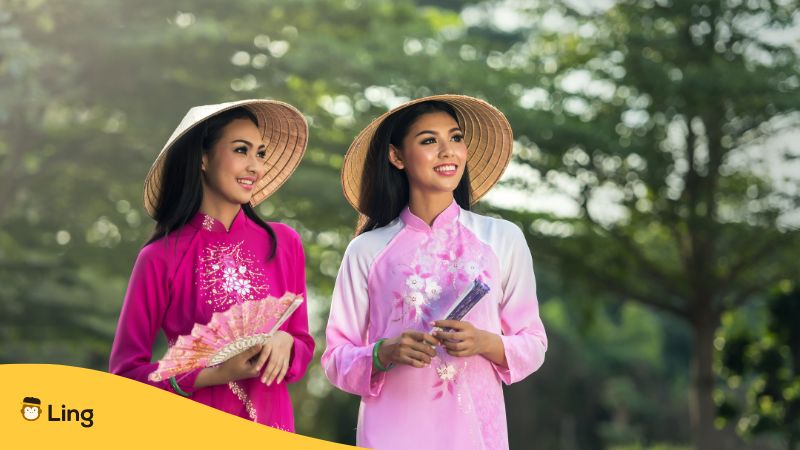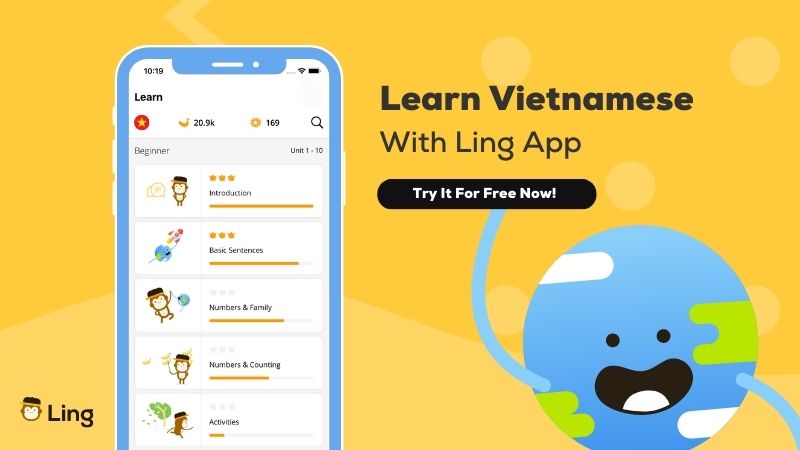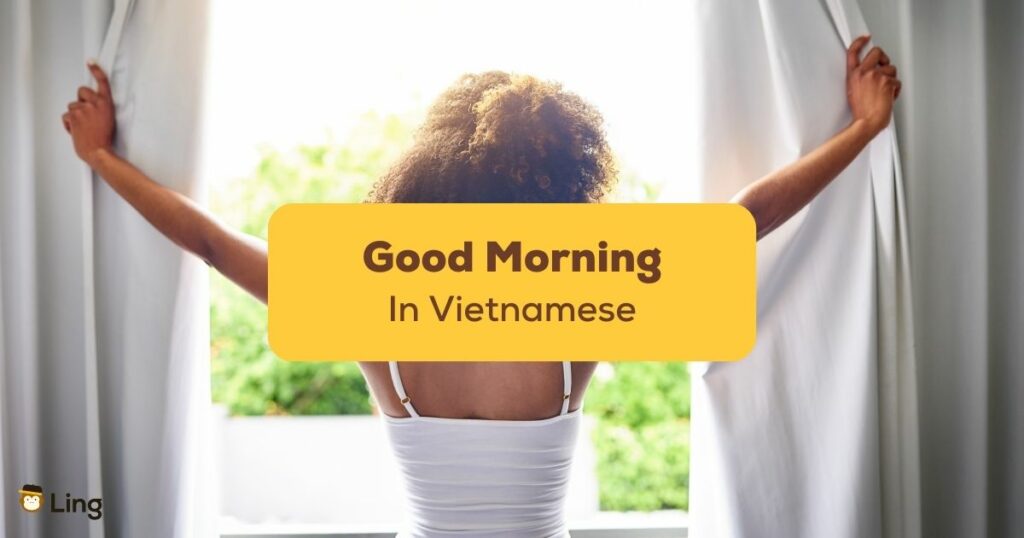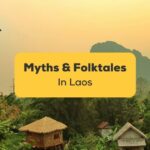Are you one of those who like to greet people with a good morning? If you’re a foreigner or immigrant in Vietnam, this guide can help you say good morning in Vietnamese like a pro. Here we’ll also give you a sneak peek at what Vietnamese people think of this greeting! Let’s begin!
Growing up, your parents probably tell you to always greet people in formal and informal settings with a good morning. However, that’s not always the case. If you plan to learn Vietnamese, you must know that this seemingly common greeting isn’t typically used in their culture. Even so, it still has an official translation if you wish to use it in certain situations that we’ll discuss later.
So, let’s not go in circles. Here have different ways to greet a person with a good morning in Vietnamese!

How To Say Good Morning In Vietnamese
Vietnamese is a beautiful and complex language spoken by millions of people around the world. Whether planning a trip to Vietnam or simply wanting to expand your linguistic repertoire, learning how to say “good morning” is a great place to start. In this section, we’ll explore the nuances of the Vietnamese language and provide a step-by-step guide on properly greeting someone in the morning.
So, let’s get started and discover how to say “good morning” in Vietnamese!
Good Morning/Hello – Chào Buổi Sáng
This Vietnamese expression’s literal translation is “good morning, period.” Chào means “hello,” and buổi translates to “period,” while the word sáng means “morning” in Vietnamese. It’s commonly used in formal situations and in greeting people in groups. For example, you may greet your co-workers, group of friends, or family members.
You can also add cả nhà (whole family) at the end of the phrase if you’re saying good morning to people you’re close with. While in business settings, you can add the suffixes -chi (to a man older than you) and -anh (to a woman older than you) to add politeness to your greeting. You must also note that this greeting generally applies from 3’o clock AM to 1o’o clock AM.
Have A Good Day – Chúc Một Ngày Tốt Lành
Although “have a good day” is quite similar to “good morning, ” Vietnamese people rarely use it. In some forums, a native speaker said it was typically used in formal meetings but not daily conversations. So, it’s safe to say that good morning in Vietnamese isn’t everyone’s cup of tea.
Greetings In Other Periods Of The Day
We won’t let you end this journey without learning the other greetings in the Vietnamese language. It’s like offering a half-baked pie if we do that, so here we have the other regards you can use on Vietnamese people.
| Vietnamese Greetings | Translation |
| Chào Buổi Chiều | Good Afternoon |
| Chào Buổi Tối | Good Evening |
| Ơi | Hey |
| Xin Chào | Hello |
| Chào bạn | Hello (person the same age as you) |
| A-lô | Hello (on the phone) |
In Vietnamese culture, it’s common to greet acquaintances with a simple wave, nod, or smile when encountering them while walking around town. This casual and brief way of saying hello is similar to the greeting customs in some Northern European cultures. Unlike some cultures, the Vietnamese typically do not use excessively formal or wordy greetings; only close friends or respected seniors might use more formal greetings.
Additionally, shaking hands is a customary practice in Vietnam, particularly among men and in professional settings such as between colleagues or clients. However, please note that hugging is not a standard greeting among Vietnamese people.
Things You Need To Know When Greeting Vietnamese People
No one likes awkward conversations, and if you’re learning this new language, you might want to commit fewer mistakes. Here are some standard etiquettes that native speakers use when they speak with their friends, family, and strangers.
1. Use Pronouns When Speaking
When meeting someone from Vietnam, you must understand that you need to address them by their pronouns, just like western countries do. However, the Vietnamese culture can be quite different as they also use familial pronouns when speaking to strangers. In short, what you call them depends on their age, generation, and gender.
Below are the pronouns that you can use:
| Vietnamese | English Translation | Use |
| Ong | Grandfather | Used for older men. |
| Ba | Grandmother | Used for Older Women |
| Anh | Older Brother | Generally non-elderly men |
| Chi | Older Women | Generally non-elderly women |
| Chu | Younger Brother | For Young Unmarried Man |
| Co | Younger Sister | For Young Unmarried Women |
| Bac | Uncle | Generally used for someone older than you regardless the gender. |
| Em | Younger Sibling | Addressed to someone younger than you. |
| Con | Child | Addressed to someone who may seem old enough to be your child, grandchild, niece, or nephew. |
| Mày | You | Beware when using this, as it can be rude/insulting when used to someone younger than you. It also affects individuals with low self-esteem. |
| Bạn | Friend | It’s an informal way to call someone. Both the speaker and the listener in the conversation are likely the same age. |
Note that when using these pronouns, you have to follow this pattern: Greetings + Person’s Pronoun + Your Pronoun + Your name. For example, “Xin chào em, chi là Jane.” This equates to “Hello, younger sibling; I am Jane.” Vietnamese pronouns can be quite tricky to understand, but you’ll eventually get the hang of it.
2. Oldest To Youngest
In greeting locals in Vietnam, you must first greet the eldest person to the youngest one. When addressing older people, you must hold their hand and greet them if they extend it. While if they didn’t, you might bow to them instead. You must also make sure to lower your eyes when greeting them to show your respect.
Want To Learn More? Try Ling!

That’s a wrap! Now that you’ve learned how to say good morning in Vietnamese and other cultural values that you should take note of, you may now dig deeper to learn more. Want to learn more? We also have guides to learn about other Vietnamese expressions, like saying sorry and basic sentence structures, so don’t forget to check them out!
But if you’re keen to master Vietnamese and 60+ other languages, we highly recommend trying out Ling! Ling is a language-learning platform filled with lessons and language-learning challenges that’ll help you discover more about your target language.
Try it out for free by downloading it from the Play Store and App Store today!



































































